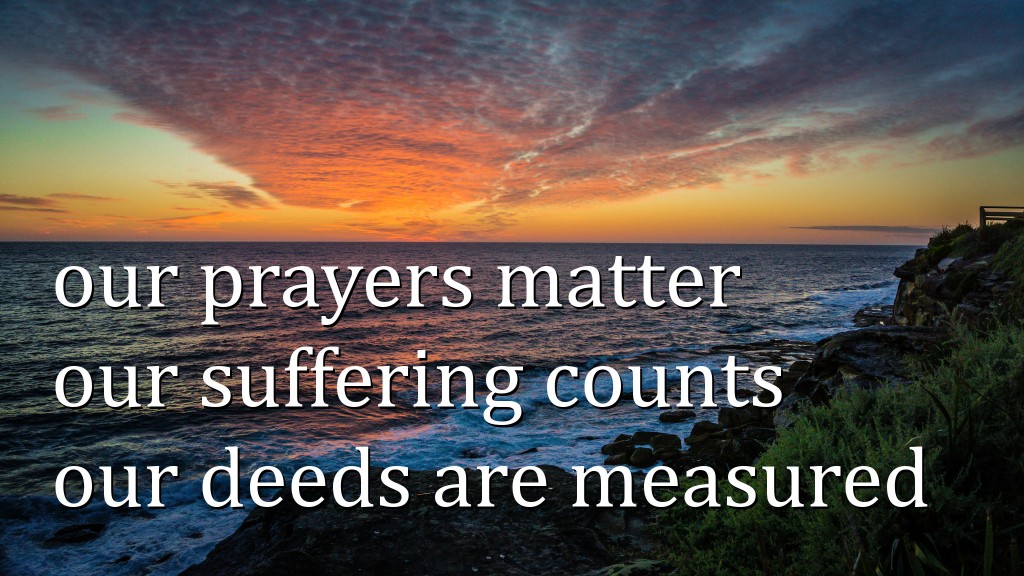 What does it really mean to be born again? At one time, I thought if you prayed the magic prayer, you were set. Your sins were forgiven and you were assured a place in heaven. I seesawed back and forth over whether you could “lose your salvation,” but I believed that salvation came simply by admitting you were a sinner and believing that Jesus died on the cross to take the penalty for your sins.
What does it really mean to be born again? At one time, I thought if you prayed the magic prayer, you were set. Your sins were forgiven and you were assured a place in heaven. I seesawed back and forth over whether you could “lose your salvation,” but I believed that salvation came simply by admitting you were a sinner and believing that Jesus died on the cross to take the penalty for your sins.
Over the years I became increasingly uncomfortable with this idea because it doesn’t seem to square with the Bible. I am afraid that millions of people may be thinking they bought the insurance by praying the magic prayer, but they aren’t born again, and they don’t have the assurance of eternal life.
As I re-examine the Bible, I see several things that I didn’t see early on.
First, the phrase “born again” is only used three times in the entire Bible. (John 3:3, John 3:7, 1 Peter 1:23) To truly understand what it means to have peace with God and a place in heaven, it pays to read the entire Bible from cover to cover paying particularly close attention to what Jesus says in the Gospels of Matthew, Mark, Luke and John.
Second, “born again” means starting a new life. That means the old life died, a new life begins. You have a new identity as a new person. You were a sinner. Now you are a child of God. The old is dead. You simply can’t be born again without receiving a new life. This is why baptism has been such an important part of the Christian experience; it signifies the death of the old, the birth of the new. This new life may be invisible, but it is not nonexistent. It changes everything. It changes how you think, how you talk, how you live.
Third, in order to be born again, we must accept a spiritual union with Jesus Christ. We must give Him His rightful place in our lives. The Bible is very clear on this. “If you have the Son [Jesus], you have life. If you don’t have the Son, you don’t have life.” (1 John 5:12) The reason that Jesus and the Apostles emphasized “believing in Jesus” is because their First Century listeners understood the implications of that belief. They understood that believing in Jesus means the transfer of ownership of our lives over to Him (1 Corinthians 6:19-20), and giving Him command over our lives (Luke 6:46). Being born again does not mean that we’ve installed a religion app in our lives, and that once in a while we will go to church or do some other religious activity. It means that Jesus now commands everything we do. While we are still free to say yes or no to Him, our inclination is to say yes. Nothing will get between us and God (Matthew 19:16-30).
This is a heavy duty decision. If we want Jesus in our lives, we need to “accept” Him as He really is: God the Son, Lord of All, King of Kings. There’s no way we can accept the real Jesus and not choose to put Him in charge of our lives. He is nothing less than Lord, and He must be accepted as such. No wonder Jesus said, “If you want to follow Me, it’s going to cost you something. Count the cost.” (See Luke 14:25-33, etc.)
Fourth, while the process of being born again may be invisible, the results are plainly visible. Here are a few of them:
If we are truly alive, we will have an appetite unless we are in ill health. If we are truly born again, we will have an appetite for God’s word, the Bible. (See 1 Peter 2:2)
We will love God and love His children, our fellow Christians. (1 John 3:14-15, 4:7-8, 4:19-21) That does not mean that we will never be angry with God or with our fellow Christians (Jeremiah 20:7, Ephesians 4:26), but we will process that anger with God, and we will forgive our fellow Christians (Matthew 6:14-15).
We will live differently. Some Christians talk about a “positional” righteousness before God, that “just-as-if-I-never-sinned” justification that makes us judicially right before God. But the Bible accents a practical righteousness (1 John 3:9, etc.) that will be marked by good deeds, caring for the needy (Matthew 25:31-46), and so on. On Judgment Day, God doesn’t want to be placed in a position where He needs to say, “Yeah, I admit he acted like a jerk his entire life, but he prayed the magic prayer so he’s in.” And we don’t want to try to put Him in that position.
But this is where many Christians seem to get confused. They assume that righteousness is something that we manufacture on our own, even though the Bible clearly teaches that we cannot and must not (Romans 4:13, Galatians 3:3, etc.). Some will say, for example, the fruit of the Spirit is patience, so we must learn three easy steps to patience. But this is wrong. Fruit is not manufactured. It is organically produced by our connection to the root. Sadly, “try harder” Christianity is regularly taught from many if not most pulpits.
Instead of standing over us with a whip, God intends to take us through a process with Him where we shed the lies we have believed, and embrace the truth about who we are, who He is, and how much He loves and cares for us. The outcome of this process is a transformed life. The supernatural result is this: Eternal life begins the moment we embrace Jesus for who He really is, and our transition to heaven at the end of this life is a natural step, because we’ve already welcomed the presence of God into every door we know how to open (Revelation 3:20).
Photo credit: Jason Pratt. Flickr

 Do you ever feel like quitting?
Do you ever feel like quitting?




 This book is about the things God showed Jesus so He could tell His followers what will soon happen. Revelation 1:1 The Easy Bible
This book is about the things God showed Jesus so He could tell His followers what will soon happen. Revelation 1:1 The Easy Bible What does it really mean to be born again? At one time, I thought if you prayed the magic prayer, you were set. Your sins were forgiven and you were assured a place in heaven. I seesawed back and forth over whether you could “lose your salvation,” but I believed that salvation came simply by admitting you were a sinner and believing that Jesus died on the cross to take the penalty for your sins.
What does it really mean to be born again? At one time, I thought if you prayed the magic prayer, you were set. Your sins were forgiven and you were assured a place in heaven. I seesawed back and forth over whether you could “lose your salvation,” but I believed that salvation came simply by admitting you were a sinner and believing that Jesus died on the cross to take the penalty for your sins.













